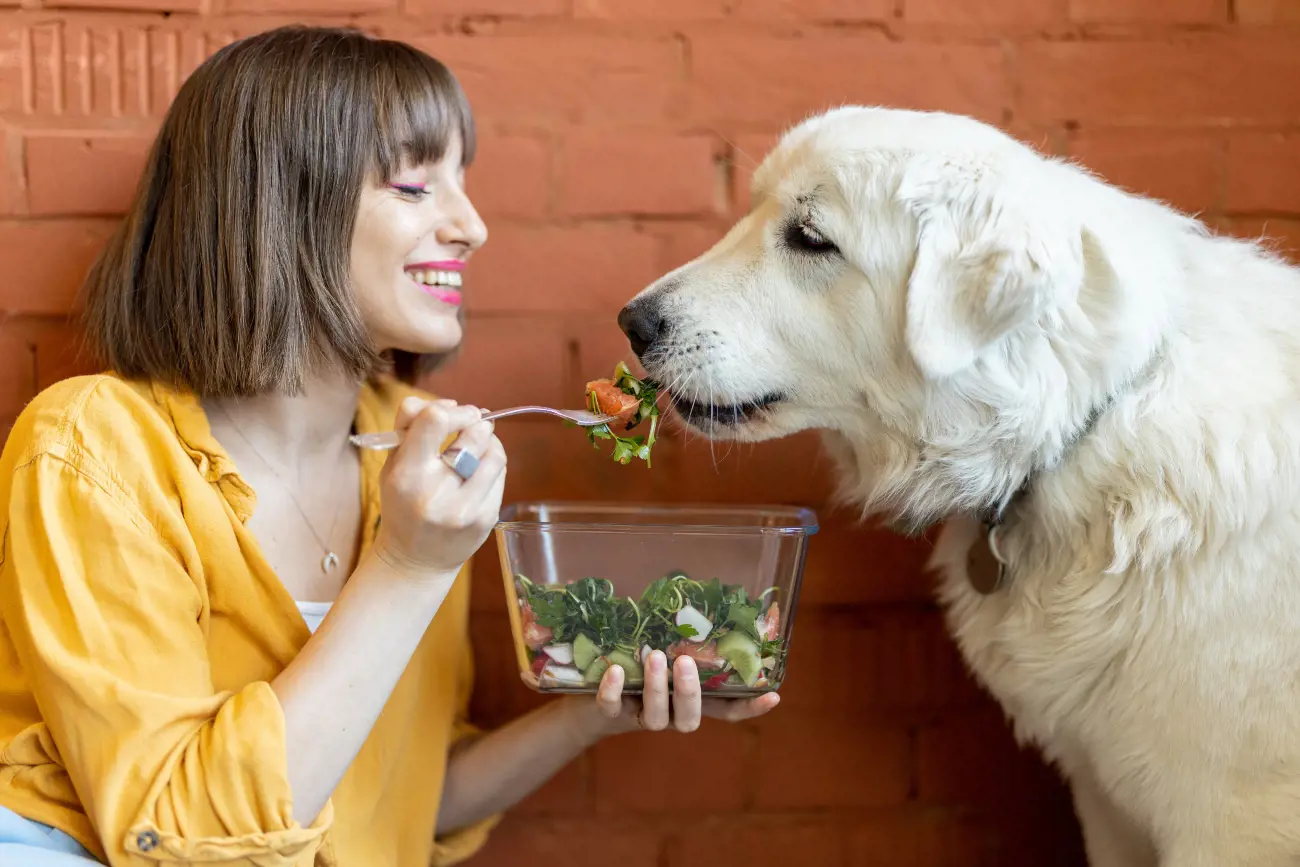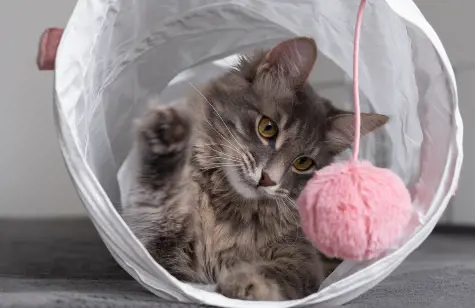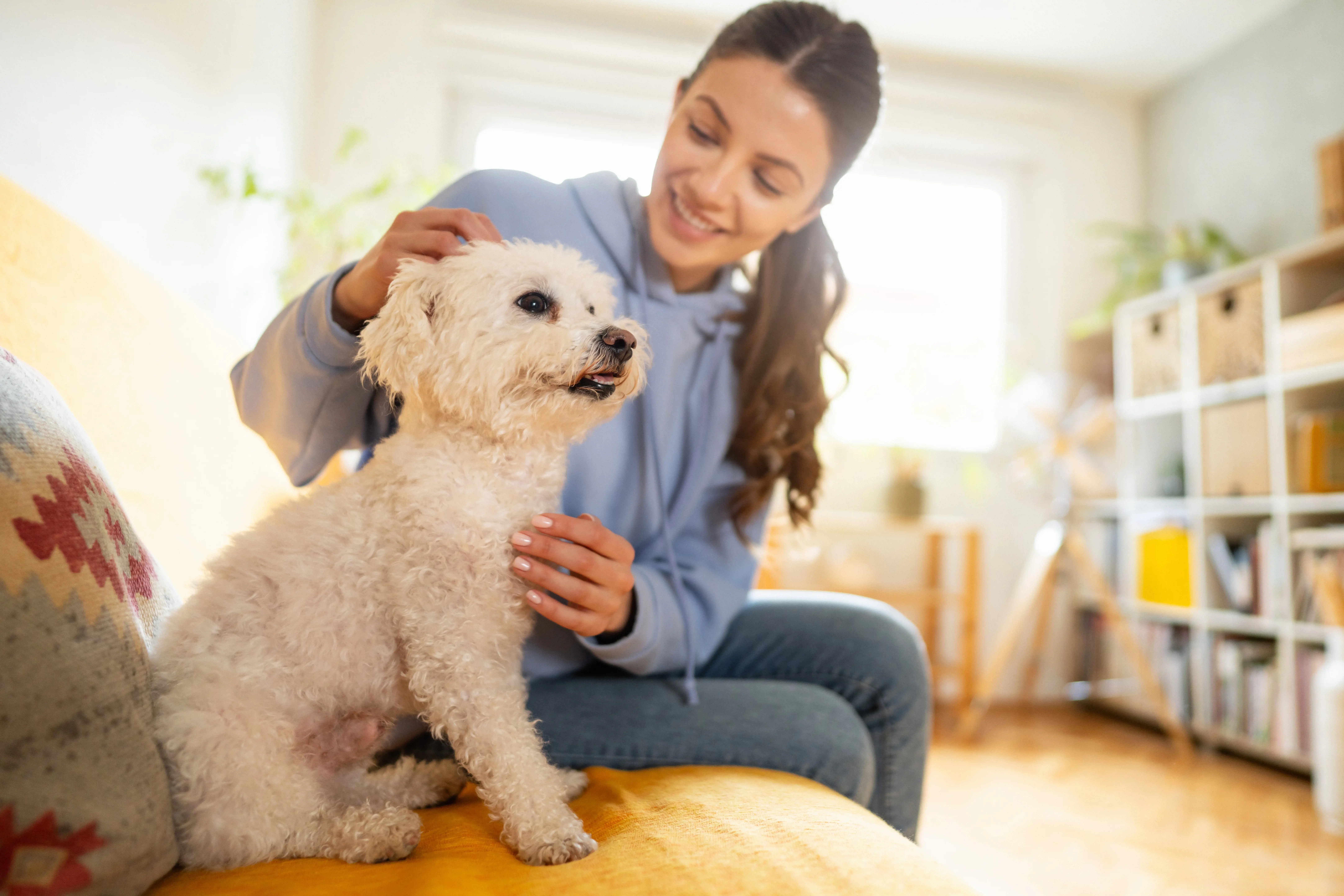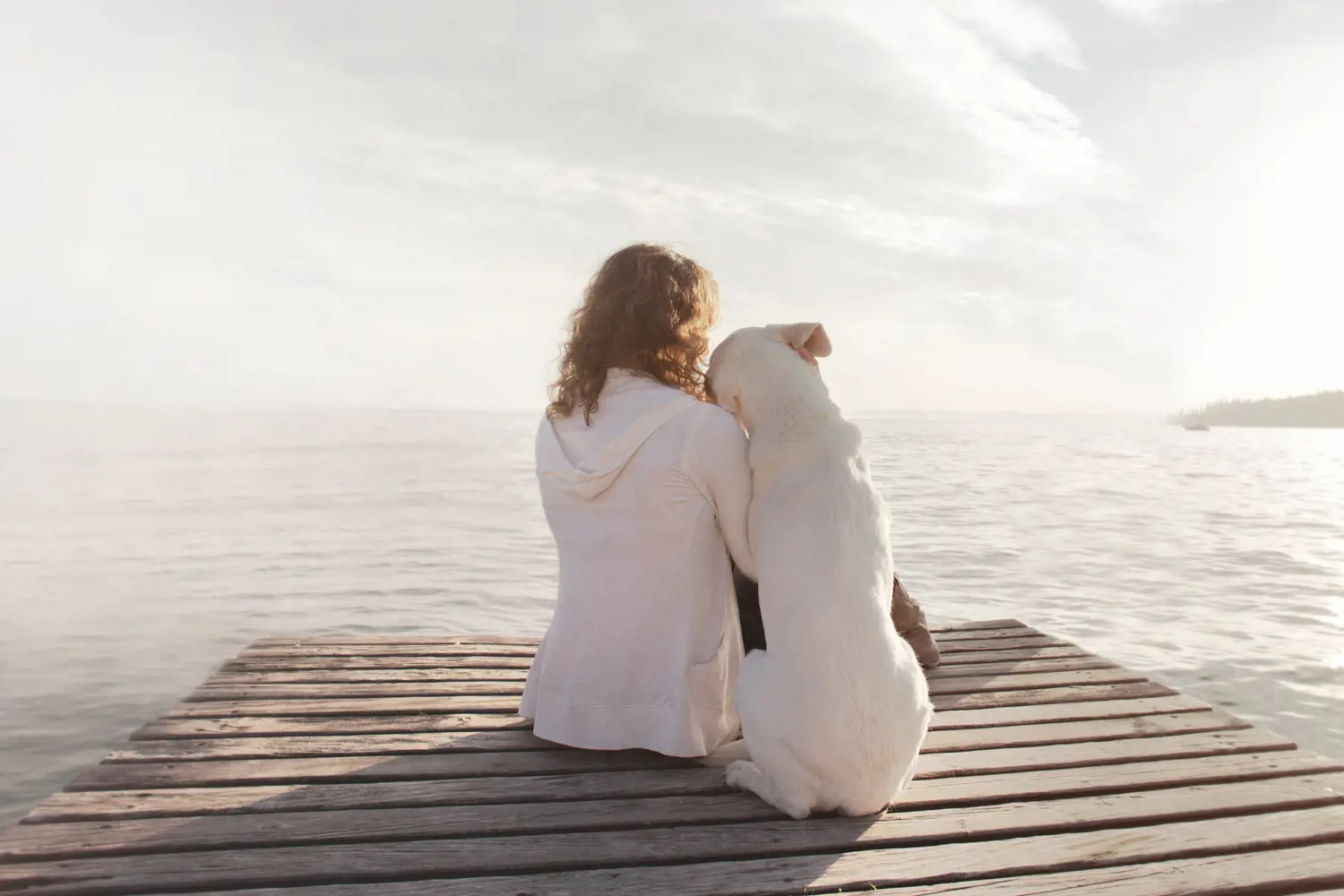How do you help your pet if it suffers from anxiety?
23rd October, 2019

Just like people, pets sometimes struggle with anxiety issues. Owners may be bewildered by a four-legged friend’s new behaviours, or feel unsure about how they can help.
When assessing your pooch or pussycat for an anxiety problem, there are several tell-tale signs to look for which we will cover in more detail throughout this article.
However it’s important to point out that changes in behaviour may be indicative of a more serious medical condition so you may need to seek the opinion of a vet if your pet is displaying any of the signs or symptoms mentioned in this article.
No matter what, it’s vital to protect your beloved pet with reliable pet insurance, as, should they suffer injury or illness, you could find yourself saddled with hefty vet bills.
Purely Pets are pet insurance specialists, as well as pet lovers. We know how important your four legged family member is to you. Our award-winning pet insurance is simple and transparent and designed to work around you and your pet.
Prolonged periods of anxiety aren’t good for your pet’s mental or physical health, so we’ve created this guide to help you combat the anxiety together.
Anxiety in cats and dogs
While there are many commonalities, anxiety manifests slightly differently in each species. We want to help you understand your pet, whether they’re a dog or a cat, so we’re going to look at how the condition affects each of them.
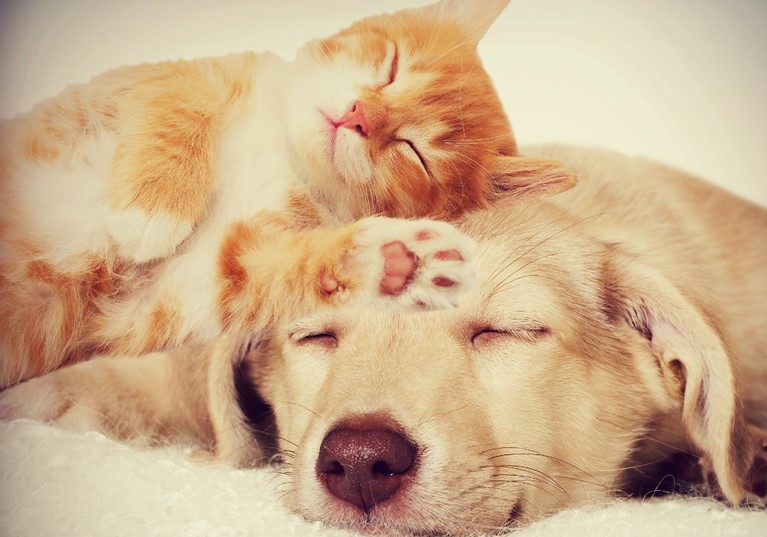
What are the signs of anxiety in dogs?
If you’re concerned your pooch is struggling with anxiety, look out for the following signs and behaviours:
- Excessive barking
- Trembling/hiding
- Yawning
- Tail between legs
- Paw raises
- Pacing
- Pinned back ears
- Lip licking
- Excessive grooming
- Inappropriate urination
- Loss of appetite
- Self-distraction
- Aggression
Bear in mind, a canine suffering from separation anxiety may not exhibit signs of anxiety in your presence, however, you may pick up on their reaction when you show signs you’re about to go out.
According to Dogs Trust, they may follow you around, attention-seek and pant – they may even try to barricade your exit, lying in front of the door!
Once you leave, it’s possible they’ll howl, bark, excessively drool, chew or become destructive, possibly toileting as well. They may injure themselves in their attempt to reach you, scrabbling or jumping at doors, for example.
The above behaviours and signs could be indicative of an undiagnosed medical condition, such as thyroid or neurological disease, Pets4Homes says. This is why quality pet insurance is so important, as you may need to consult a vet and pay for expensive tests or procedures.
What are the causes of anxiety in dogs?
Every dog is different, with a different history, personality and breed-specific tendencies. That being said, there are some common causes of anxiety in dogs:
Separation anxiety
The most common cause of canine anxiety, an affected canine feels anxious when their owner is absent. Many rescue dogs/puppies with a history of abandonment experience separation anxiety.
Frightening sounds
Puppies and adult pooches are unlikely to be fans of loud, unexpected noises such as fireworks and thunderstorms.
Traumatic experiences
If you’ve adopted a rescue dog/puppy, they may have suffered serious abuse and neglect in their previous home, leading to anxiety issues, phobias and a disliking of meeting new people.
Likewise, some dogs have had unpleasant unpleasant encounters with other dogs which mean they become anxious when encountering new dogs.
Lack of environmental and social exposure during puppyhood
It’s crucial to ensure a young puppy has plenty of exposure to varying environments, animals and people, especially before they reach 14 weeks of age. This helps build their confidence, getting them familiar with the world around them.
If you want to help your pup tackle anxiety issues, your first step is pinpointing the root cause. Take note of when and where doggy anxiety starts to kick in, closely observing your pooch’s behaviour and movement.
Ask yourself whether you’ve changed their routine in any way. Have you switched to a new dog food? Each dog responds differently to dietary change, metabolising food with varied efficiency, and some foods may change serotonin or blood sugar levels.
Make sure canine mealtimes are consistent, and avoid food laden with artificial colours and preservatives.
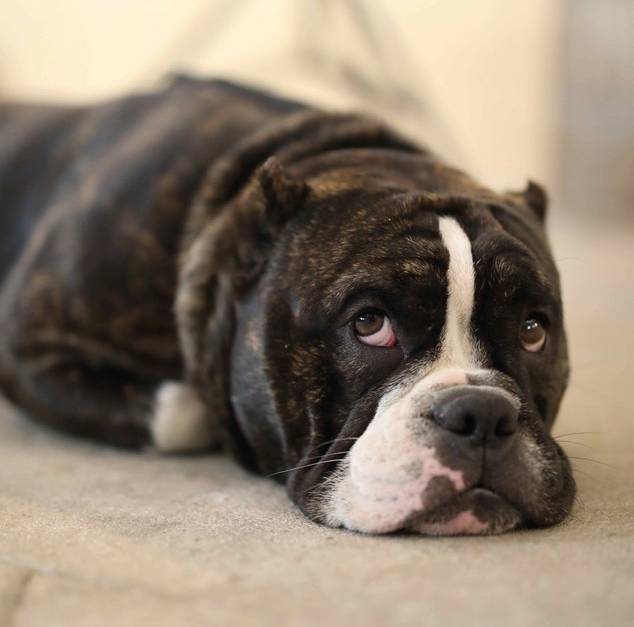
As previously mentioned, many rescue dogs carry traumas with them, caused by past experiences. If you choose to adopt a rescue pooch, try to find out about their previous homes and understand any anxiety triggers.
Every canine is different; some have more cautious dispositions. Understanding what stresses your dog out helps you manage the problem, and keeps your nervous pup calm.
Persistent, specific fears are phobias – for example, an excessive fear of being crated or confined. Dogs need their own space and time to themselves, as well as plenty of love and attention.
Detecting separation anxiety in your canine is less straightforward, as they may seem fine when you’re around. Look out for the signs we noted earlier, and consider setting up a video camera to monitor their behaviour when you’re out.
Ageing affects the nervous system, but then so do toxic conditions and infectious diseases. It’s not always clear what’s causing doggy stress - there may be a medical cause behind it.
It’s always wise to consult a vet if your pooch starts acting out of character – make sure your furry friend has reliable pet insurance, too.
Can dogs have anxiety attacks?
Dogs may exhibit similar symptoms to those shown by someone suffering an anxiety attack: shaking, restlessness and trouble breathing.
What are the signs of anxiety in cats?
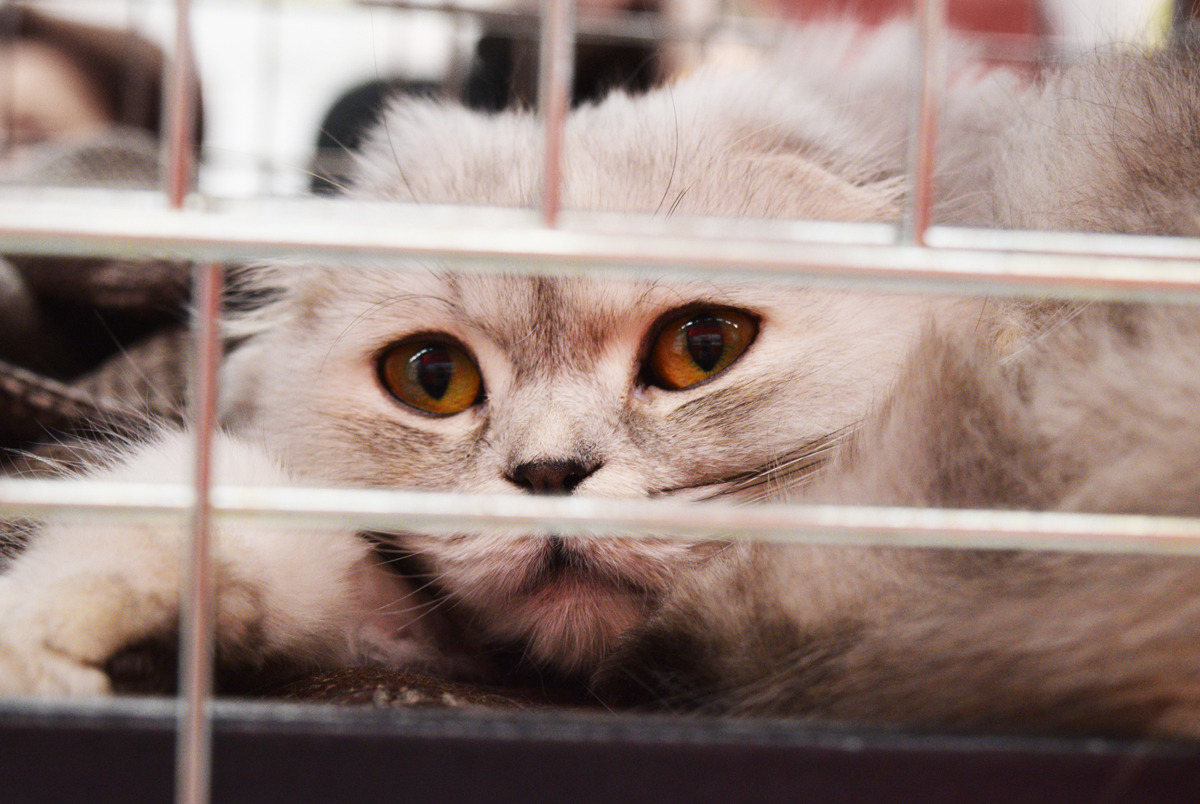
Cats may be hard to read, but there are certain signs and behaviours that may point towards an anxiety problem:
- Aggression
- Running away/hiding
- Freezing
- Flattened ears
- Licking nose
- Wide eyes with dilated pupils
- Shaking/trembling
- Involuntary toileting/no longer using the litter tray
- Anti-social behaviour
- Under or over grooming
- Altered appetite or weight
- Excessive meowing
An anxious kitty struggling with separation anxiety may follow your every movement, room to room, craving constant love and affection.
When they sense your imminent departure, they may meow loudly, sulk or hide. In your absence, it’s possible destructive behaviour will occur, such as hiding in high places or refusing to eat.
What are the causes of anxiety in cats?
Feline anxiety is not often discussed, but many cats struggle with the condition. Cats may be harder to observe than canines, however, there are some common anxiety triggers:
A change in routine
Major changes to their environment or routine can put some pussycats on edge. The arrival of a new baby or family member could cause stress, as could moving house.
Scary sounds
Similar to dogs, cats aren’t fond of sudden, unexplainable sounds. If you have a house cat, the sudden whir of the hoover may startle them, or if they like to venture outside, they’re likely to find thunder and lightning nerve-wracking.
Separation anxiety
Cats suffering from separation anxiety will experience distress when their owner leaves the house – this afflicts rescue cats/kittens in particular, who may have been abandoned several times over.
Traumatic background
Rescue felines with traumatic backgrounds may have suffered serious abuse and neglect in their previous homes, causing anxiety issues down the line.
Lack of socialisation during kittenhood
A kitten needs plenty of exposure to new people, animals and environments, from an early age. This helps build confidence and lessens the chance of anxiety issues developing.
If you’ve adopted a rescue cat or kitten, try to research their history. This will enrich your understanding of potential anxiety triggers so you can minimise exposure.
Rehomed pussycats may be particularly anxious around strangers and children, so it’s important to consider this when adopting – is your home a suitable environment? They may be less trusting, so respect their space and give affection on their terms.

A happy cat has a consistent, familiar routine. Ask yourself if any major changes have occurred lately, and consider whether they’ve impacted your kitty’s health.
You may have introduced a new pet to the household or started boarding lodgers, for example. Some cats are more prone to anxiety than others, and may develop phobias.
As we know, separation anxiety is harder to detect, so consider setting up a camera to observe your pussycat’s behaviour in your absence.
It’s always best to play it safe: ensure your furry friend has reliable pet insurance, and take them to the vet for a full check-up, in case of underlying medical issues.
Can cats have anxiety attacks?
An overwhelmed feline may hide, flee or simply freeze. They may lose control of their bowels/bladder or become aggressive. Piloerection may occur: your cat’s fur will stand on end and their tail will puff up, an attempt to look as imposing as possible. These are all signs your cat is experiencing intense anxiety.
How to help your pets with anxiety
If you conclude your four-legged friend is suffering from anxiety, there are plenty of steps you can take to help. It should be noted, it’s always best to consult a vet, just in case the symptoms are related to medical issues.
What can I give my dog for anxiety?
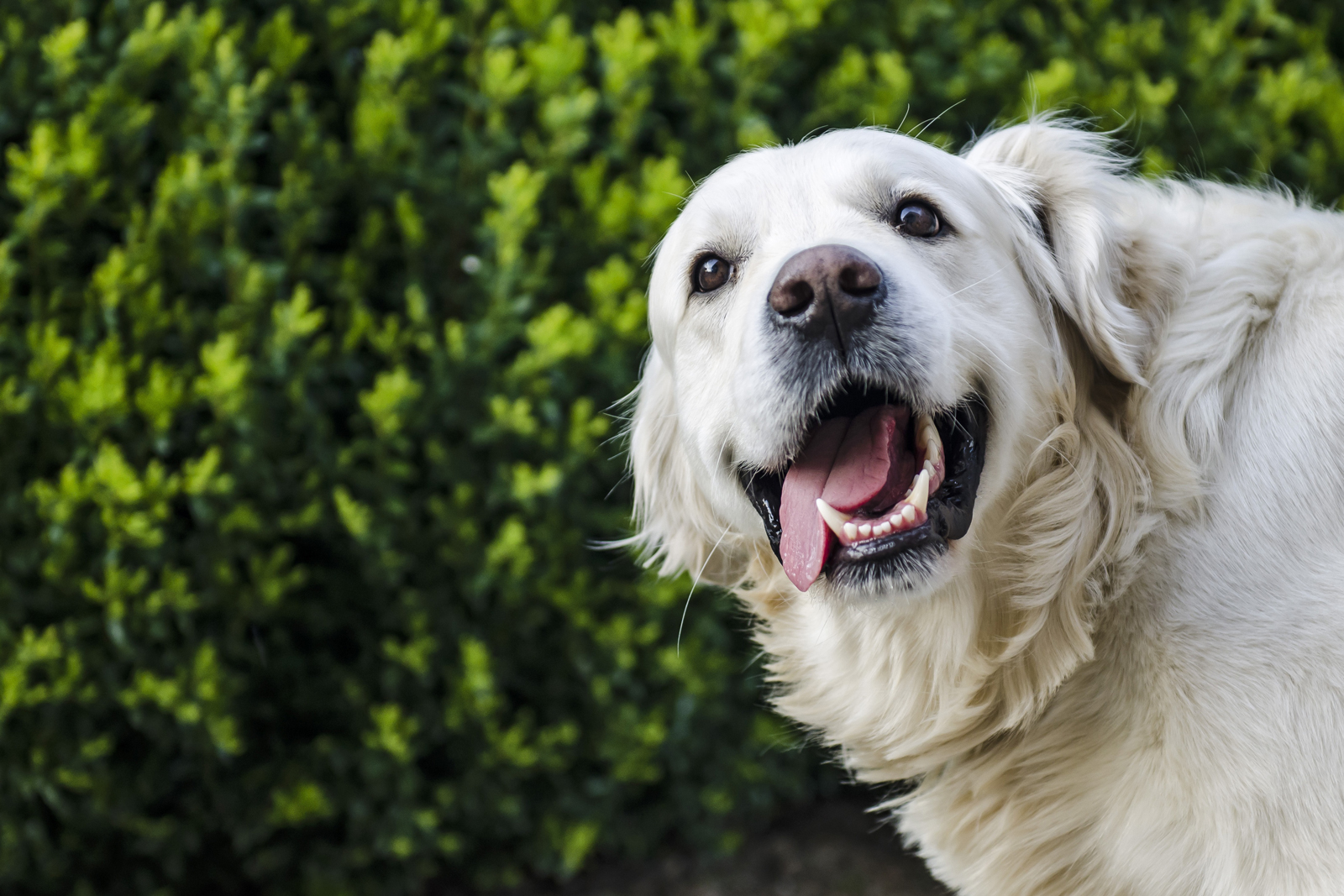
Try to manage doggy anxiety before considering medication. It’s best to start by creating a calm environment, so ensure your dog has quiet areas of the house where they can retreat. You can also:
Minimise exposure to stressors
There are certain situations you may need to avoid permanently, especially if you’ve adopted a rescue pooch. If your dog has particular triggers, avoid them until you feel they can cope, if ever. It’s never a good idea to take dogs out during storms or firework displays.
Counter-conditioning/desensitisation
If your furry friend is receptive, try getting them to perform a positive action in the face of a stressful scenario, redirecting their attention.
For example: get them to sit and stay, then reward. Desensitisation involves repeatedly exposing your dog to a stimulus that usually triggers their anxiety, but in a controlled environment. This helps diminish the phobia over time.
Build confidence
If your dog comes from an abusive background or struggles with separation anxiety, it’s important to build their trust, confidence and independence.
Try giving them an interesting toy or treat when you spend time together, gradually moving it further away. This will help your pooch learn to enjoy time spent alone.
There are various medications and treatments available for anxious pups, which your pet insurance may cover. Consult a vet if you feel your dog needs extra support.
How can I help my cat's anxiety?
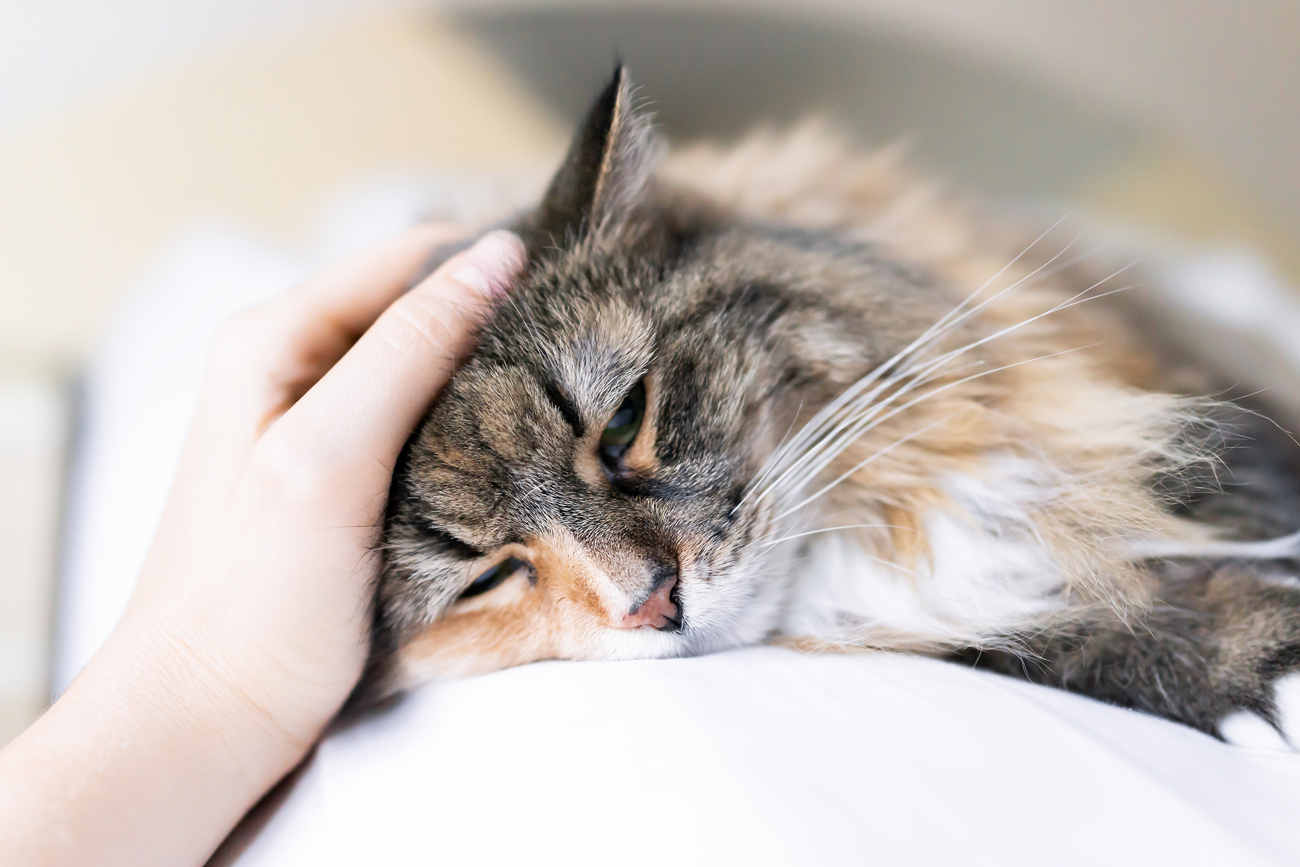
If your cat is struggling with anxiety issues, don’t despair. Aside from minimising exposure to known stressors, there are several measures you can take to help:
Hidey holes
Battersea Dogs and Cats Home suggests providing your kitty with plenty of quiet places to hide up high, as well as maintaining a calm, consistent home environment.
Distraction tactics
If your pussycat suffers from separation anxiety, try to create a stimulating setup for him/her to enjoy in your absence. Purina recommends purchasing interesting toys, puzzle feeders and perches with a good visual range, to keep kitty distracted.
Pheromone therapy
While this won’t ‘cure’ your cat’s anxiety, it may have a calming effect. There are various plug-ins, diffusers and sprays that are designed to release pheromones known to be soothing to animals, mimicking natural feline pheromones.
Again, it’s always wise to talk to your vet if your cat’s acting out of character. There may be hidden medical causes behind new behaviours, so play it safe.
New dog and cat owners
It’s worth noting, pet insurance doesn’t tend to cover conditions that occurred before you secured cover for your pet. If you’re purchasing a kitten or puppy, make sure you seek a reputable breeder who’s able to provide certification of vet checks and vaccinations.
Consider this when adopting a rescue pet as well. Legitimate shelters carry out thorough checks when taking animals in, so ask questions and consider your budget before committing.
This is fairer on any potential pet; you want to be their forever home, so you need to take into account your personal financial circumstances.
Protect your pet
Whether you’re a new pet owner or not, you want the best for your four-legged friend. You can never rule out illness or injury, which is why it’s so important to protect yourself and your pet with dependable pet insurance.
Winner of the 2019 Insurance Choice Awards, Purely Pets truly cares about pet welfare. We offer quality, straightforward pet insurance, tailored to your needs and budget.
Don’t put it off, get a quote today.
Helpful Pages
Recent Posts
Pet Insurance Quote
- 98% claims paid *
- Claims paid directly to vets
- 24/7 vet video consultations
- Interest free monthly payments

